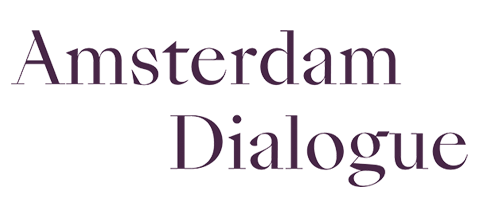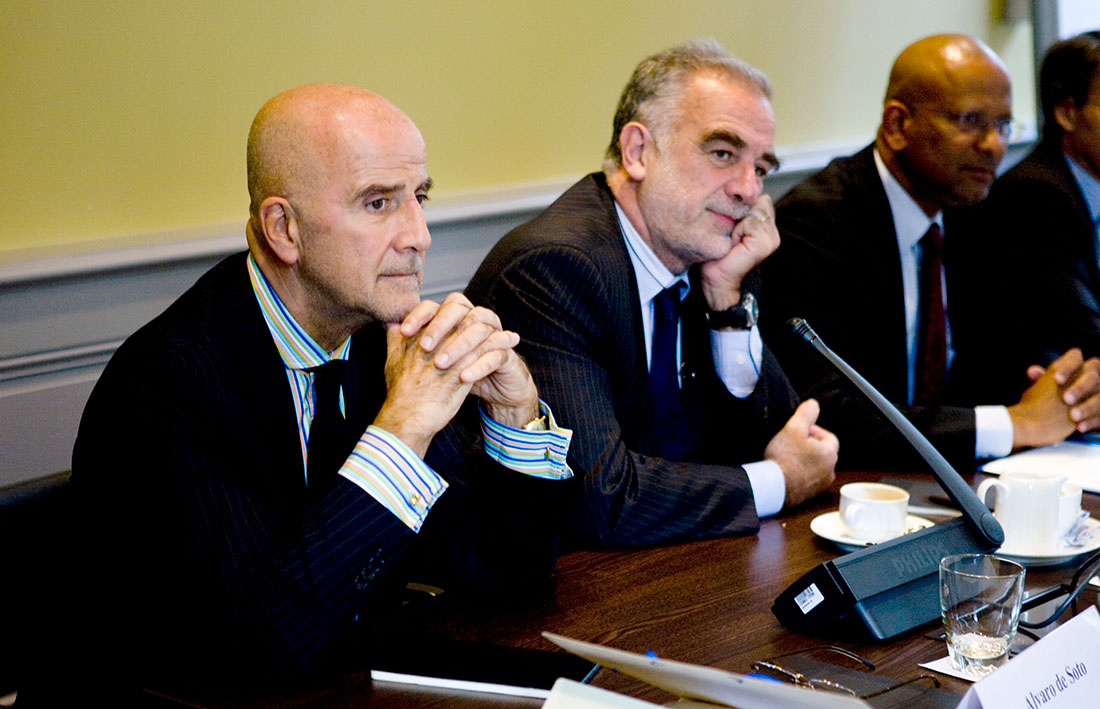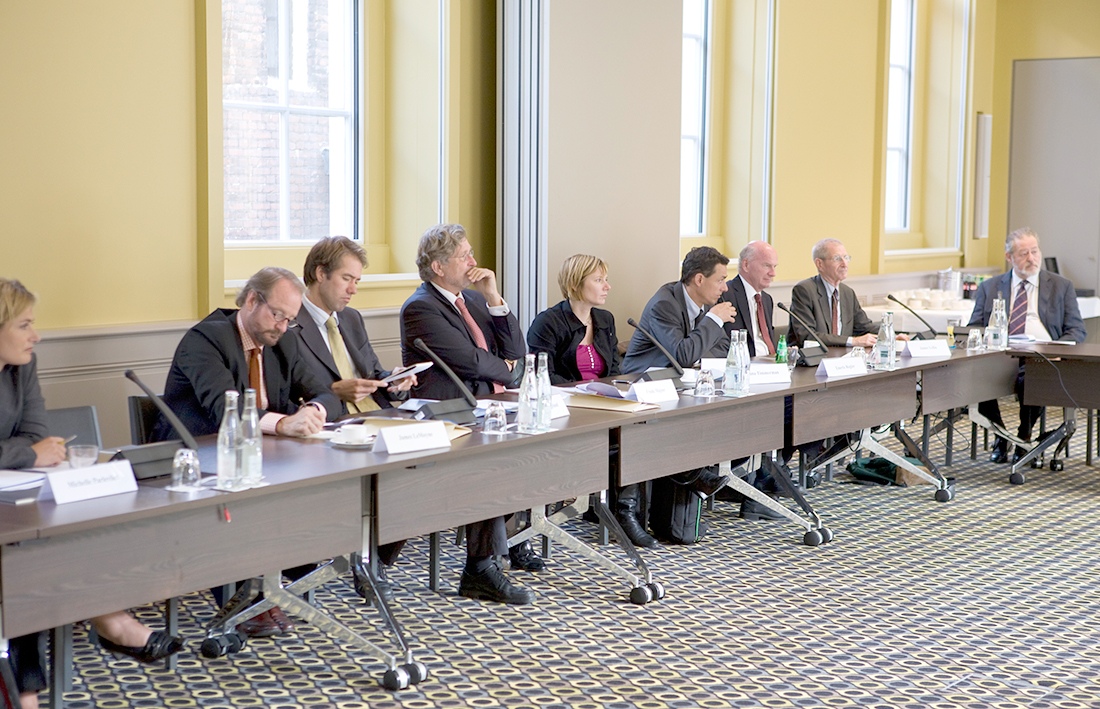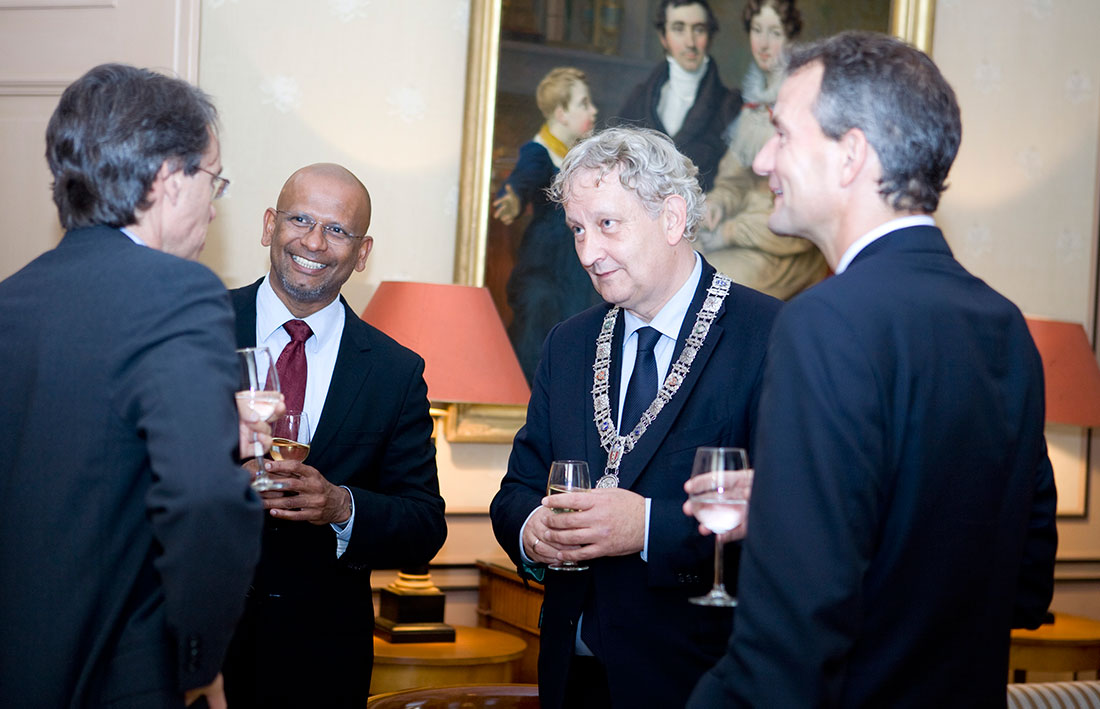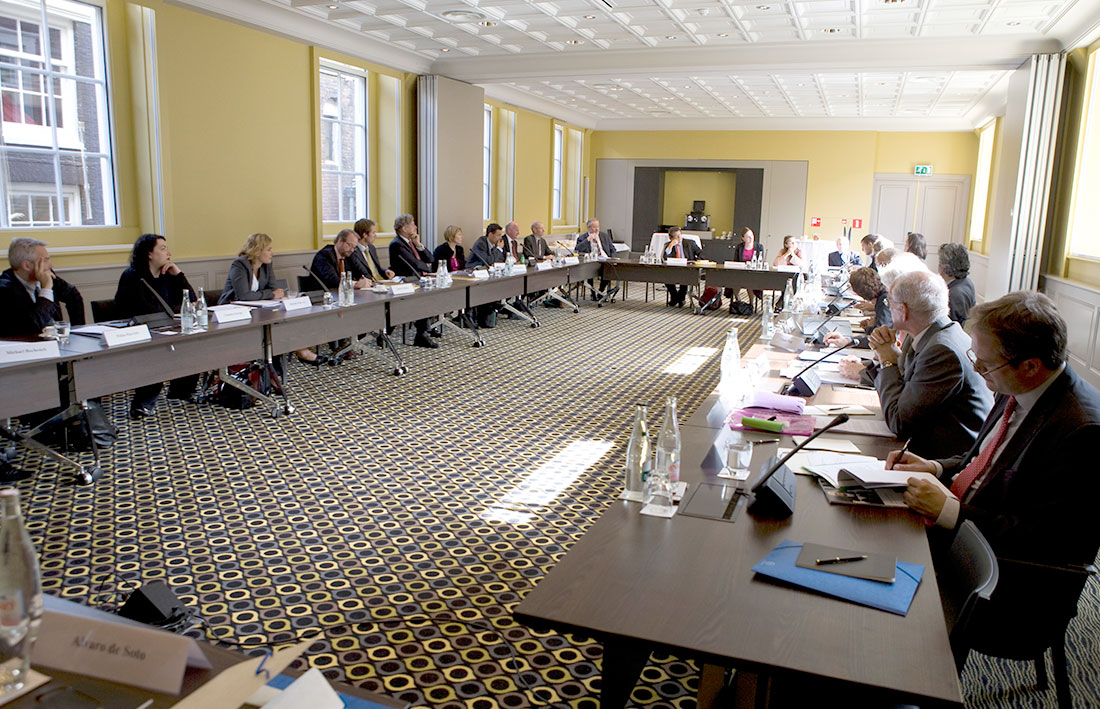On 13 September, 2010, a select group of human rights advocates, mediation experts and European policymakers gathered in Amsterdam to discuss the relationship between mediating a peace process and accountability for serious human rights violations. The peace versus justice debate is often presented in adversarial terms, but the seminar sought to explore potential compatibilities, and in particular ways to pursue the peaceful resolution of armed conflict while promoting accountability for war crimes and serious violations of human rights.
The participants from both the mediator and human rights perspectives agreed that peace processes must now take justice into account, given the existence of the International Criminal Court. Amnesties for crimes under the Rome statute – war crimes, genocide and crimes against humanity – are no longer a viable option for inducing parties to reach a political settlement. Given this paradigm shift, the question is not whether mediators should take justice and accountability into consideration, but rather when and how to introduce the new reality while engaging governments and armed groups.
On how to integrate justice effectively into the process, some suggested that a discussion on accountability, human rights and the rule of law might in some circumstances be a way to approach and engage parties to a conflict. The Taliban, for example, has made an issue of civilian casualties and the rule of law, which it claims to have brought to areas under its control. Similarly, corruption in the Afghan government is one of the few issues on which the Taliban and Western forces agree. In this conversation, mediators can stress that accountability cuts both ways: the crimes of one side may be serious but justice applies equally to the other side. Parties willing to engage on justice can have a say in the inevitable development of the procedures for achieving accountability. Highlighting the political cost of serious human rights violations and the political advantages of human rights compliance present another potential tool. The FARC is hated by many Colombians, for example, but its opening up to accountability efforts might win it increased support, while ongoing violations could have the opposite effect.
The participants also discussed whether mediators had other tools, now that international justice is non‐negotiable. Sequencing can offer mediators flexibility, some said, but postponing accountability efforts for too long risks leading to de facto amnesties. The limitations, or caveats, of international law also came to light. The ICC and ad hoc tribunals will at most deal with a few high‐level officials for the most egregious crimes, so national courts still play an important role. Other forms of accountability besides criminal justice, including traditional mechanisms and reparations, may be necessary and appropriate, so long as the punishments are commensurate with the gravity of the crimes.
The international community more broadly can contribute to successful mediation efforts that promote and protect human rights over the long term, some participants said. First, donors should increase their support for domestic justice institutions, so these institutions are better equipped to handle complex cases in periods of transition. Second, peacekeeping and peacebuilding operations can better integrate justice mechanisms to assist with transitional justice. Third, governments and international organisations should work to apply international law equally to all conflicts and eliminate apparent double‐standards or “non‐compliance zones,” which warring parties may see as hypocritical.
Agenda, Monday 13 September
14:00 – 15:30 Introductions
- Welcome by Ram Manikkalingam (Director, Dialogue Advisory Group)
- Presentation of Human Rights Watch report “Selling Justice Short – Why Accountability Matters for Peace” by Kenneth Roth (Executive Director, Human Rights Watch)
- Comment on report by Martin Griffiths (Executive Director, Centre for Humanitarian Dialogue)
15:30 – 16:00 Coffee break
16:00 – 17:00 Round table discussion
17:00 – 17:30 Conclusions
- Luis Moreno-Ocampo (Chief Prosecutor, International Criminal Court)
- Alvaro de Soto (former United Nations Envoy to El Salvador, Cyprus and Israel/Palestine
18:30 – 21:30 Reception and Dinner
- Hosted by Eberhard van der Laan (Mayor of Amsterdam and the Aldermen of the City of Amsterdam)
